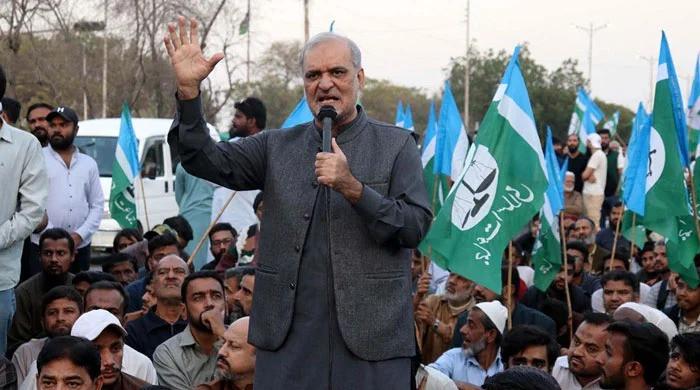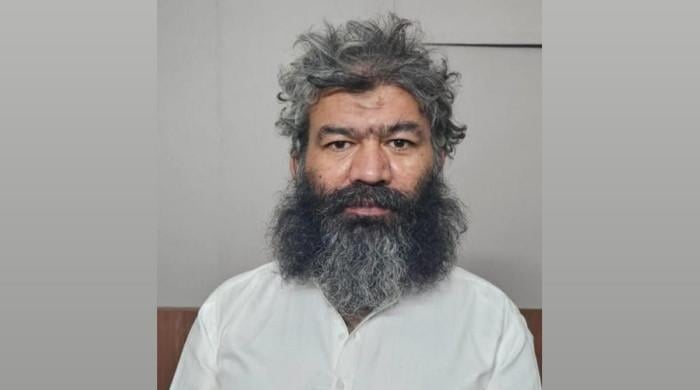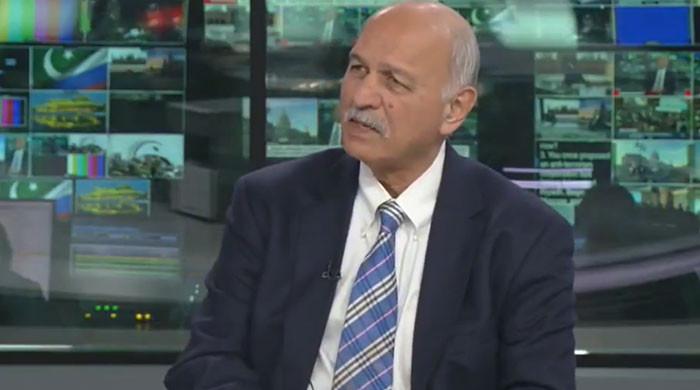Asad Umar stresses need for system to counter fake news
"If fake news is causing disorder in society, a system is needed to oversee it", says Asad Umar
September 15, 2021
- "If fake news is causing disorder in society, a system is needed to oversee it", says Asad Umar.
- Says "this system should not be based on the likes and dislikes of Asad Umar or Fawad Chaudhry, but it should be an independent system."
- Says proposed authority [PMDA] will only investigate cases in line with the principles of "truth and justice".
ISLAMABAD: Federal Minister for Planning, Development, and Special Initiatives Asad Umar on Wednesday said that "fake news is spreading [in the country] on a day to day basis," therefore, a system to keep a check on that is necessary."
The minister was speaking in reference to the PTI-led government's proposed Pakistan Media Development Authority (PMDA) during a ceremony to mark the International Day of Democracy.
"If the honour of a Pakistani citizen is at stake or if fake news is leading to disorder in society, then there should be a system to oversee it," he said. "And this system should not be based on the likes and dislikes of Asad Umar or Fawad Chaudhry, but it should be an independent system."
He added that the proposed authority will only investigate cases in line with the principles of "truth and justice".
Umar also spoke about the concept of self-regulation and said that if all the regulators from the country are dismissed, the media itself will not be happy with the system.
"I hundred per cent agree that the government should sit with all media stakeholders and listen to their concerns so that a system to promote good journalism could be implemented."
"A good journalist will always support a good law," he said.
Speaking about democracy on behalf of his ministry, Umar said that democracy is strengthened when the public starts considering itself to be a part of the democratic system.
"Democracy is facing challenges throughout the world, therefore, if a country wants to strengthen its democratic values, then it will have to make its accountability mechanisms stronger, " he said.
Umar also said that while it is necessary, within a democratic system, to have a free judiciary, it "can never be above the law".
He said even the judiciary will have to answer for the assets they own.
The minister said that keeping aside all personal interests, the government and the Opposition will have to unite to bring about constitutional amendments.
Why are journalists opposing the Pakistan Media Development Authority?
At a time when Pakistan is facing declining media freedom and freedom of expression for the media is ranked at 145 in the world, the introduction of such laws will further worsen the global image of Pakistan.
The controversial law is ill-conceived on all counts: it proposes to set up all media (print, television, radio, films, social media and digital) control under one body, ignoring the fact that each media format has unique dynamics and characteristics that cannot be governed under one authority.
Print, for instance, is under the provincial domain. With 150 TV channels (still growing), over 300 radio stations, 3,000 print publications, numerous digital and social media platforms, 1,000 cable operators, numerous film production houses, it is practically impossible for one authority to govern them.
It will only breed more inefficiency and will lead to corruption as well as stifling healthy discussion and debate which is a must for a growing democracy. Nowhere in the democratic world does such an example exist. Moreover, individual regulatory bodies that regulate respective media platforms already exist.
Besides this, a regulator must be independent of government control. However, governmental control over the appointment and removal process makes this proposed body another bureaucratic addition.
Moreover, a body headed by a serving grade 21-22 officer of the federal government cannot by any means be considered independent.
The presence of provisions like “power of federal government to issue directives” of binding nature to such a body make it further subservient to the government.









